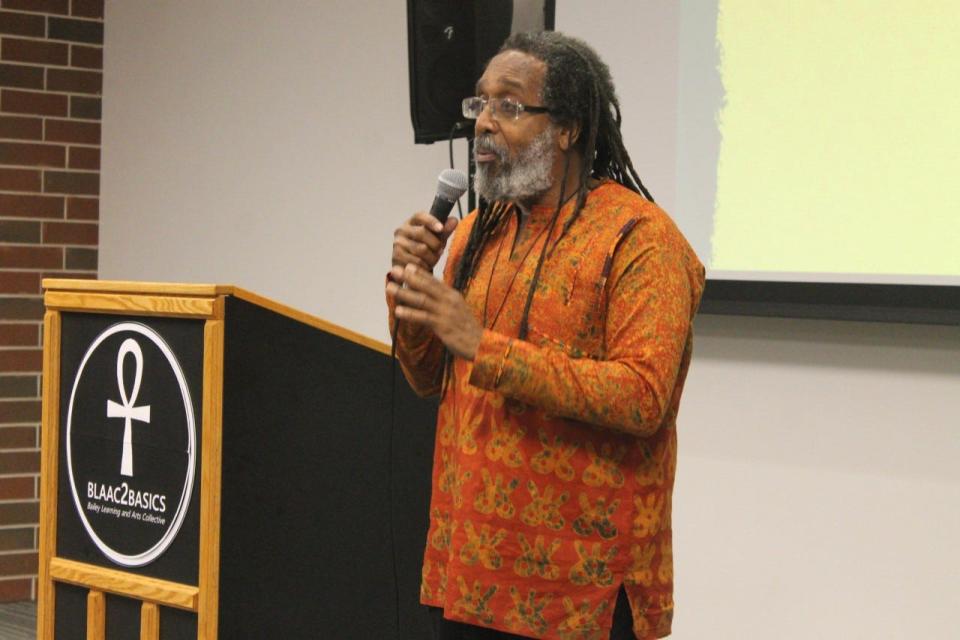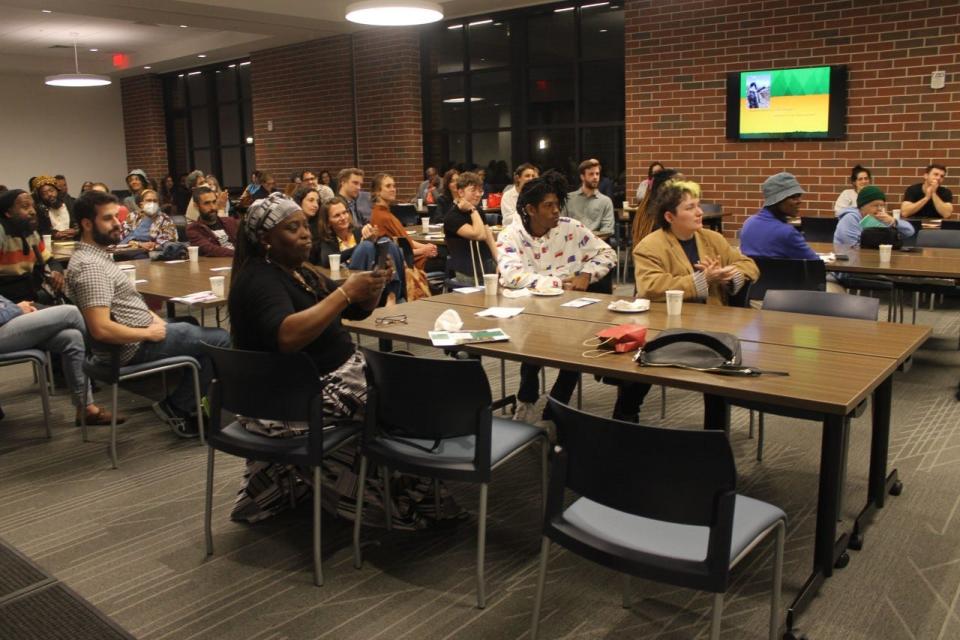Food activist urges Black community in Gainesville to embrace farming as a way of life
A food activist encourages the Black Gainesville community to embrace the power of farming and sustaining the livelihood of its families and neighbors.
Activist and educator for food sovereignty, Malik Yakini, spoke to local residents at the Santa Fe College Blount Hall near downtown Gainesville on Wednesday about the importance of farming.
The discussion was sponsored by the Greater Duval Neighborhood Association, SPARC 352, University of Florida’s Field and Fork Campus Food Program, Bailey Learning and Arts Collective Inc. and the Lydia B. Stokes Foundation.
Forum educates:Forum educates community about healthy, local food
Black restaurants:Black-owned restaurants on the rise
Aspiring chefs:Culinary course to aid aspiring chefs
Yakini, a native of Detroit, is the co-founder and executive director of the Detroit Black Community Food Security Network (DBCFSN) that was created to address food insecurity in his city.
“I’m glad I was a part of this event and heard him speak,” said Terri Bailey, founder of The Bailey Learning and Arts Collective Inc. “He touched on more than food security. He talked about unity and the internalized oppression some Black people feel.”

Anna Prizzia, an Alachua County commissioner, founded the UF/IFAS Field & Fork Program and is the co-founder of Working Food, a non-profit that works to cultivate and sustain a local food community in north central Florida.
Prizzia said she crossed paths with Yakini while attending food programs.
“I started following his work and was inspired by what he has done in his community and the country,” Prizzia said. “We have a responsibility as public officials in office to address areas of sustained agriculture, having conversations about the power dynamic and how we can work together to build a better future.”

Yakini began his presentation with a quote from political activist and entrepreneur Marcus Garvey which states, “The greatest weapon against the Negro is disorganization.”
Yakini said Black people seeking food sovereignty are more empowering than accepting food security.
He said although food drives and food giveaways mean well to the community, they do not provide the community with a way to control the means of production of food within their communities.
“Look at the root causes of the problem instead of looking at the symptoms,” Yakini said.
Yakini said he advocates for food sovereignty because the term not only shows that the community has enough food, but the community shapes and defines the food systems that provide the food.
Through the DBCFSN, organizers operate a seven-acre farm called D-Town Farm.
Yakini said DBCFSN is in the process of building a 34,000-square-foot building called the Detroit Food Commons that will be a cooperatively-owned grocery store and share-use kitchens.
The network hosted a groundbreaking in April last year.
Yakini said building grocery co-ops in bBack neighborhoods gives residents the opportunity to have access to high-quality foods and more nutrient-dense foods.
“The community should decide for themselves what’s in our own best interest,” Yakini said. “Every community has the answers to the problems they face.”
Yakini attributed the issues Black people face to capitalism, white supremacy and patriarchy.
“The community needs help to co-create, not someone imposing on them,” he said. “The nature of our work is grassroots and that is built on trust.”
Yakini said the COVID-19 pandemic brought awareness to the lack of food resources when people saw empty shelves in grocery stores.
“The COVID-19 pandemic showed the fragility of the food system,” Yakini said. “Those who weren’t putting money in the food systems came in droves.”
Yakini also talked about the challenges he faced when he embarked on the journey towards building food sovereignty.
Facing Black people with internalized self-hatred and disbelief and funding for DBCFSN were the two challenges he said he faced.
He also talked about his experience in Yaounde, Cameroon in west-central Africa, and attending a conference called Alliance for Food Sovereignty in Africa.
Yakini said Blacks must strive to change the stigma of farming in the U.S., and that being a farmer is an esteemed position in Africa.
“Some people see farming as low class — that’s how society frames it,” Yakini said. “When I was in Mali, residents told me to greet the farmers because those who work in the sun help feed the people who work in the shade.”
This article originally appeared on The Gainesville Sun: Farming is a way for Gainesville Blacks to prosper, farming expert says
